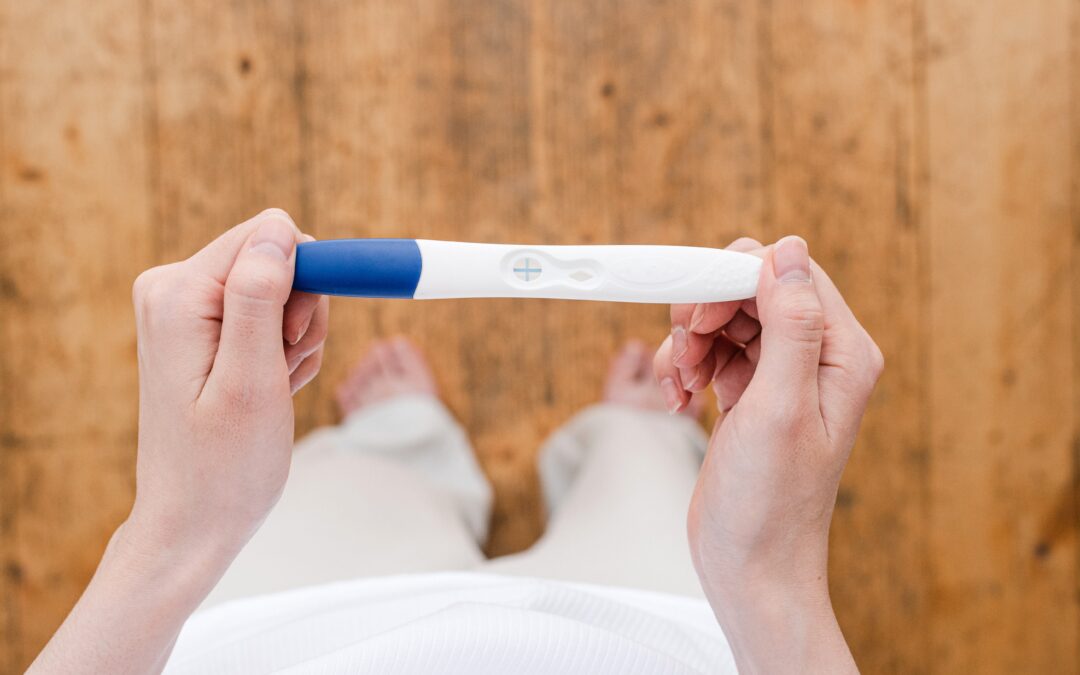If you are a woman who is trying to conceive or sexually active, you may be wondering if you are pregnant or not. The early signs of pregnancy can be confusing and may be similar to premenstrual symptoms. However, understanding these early pregnancy signs can help you identify and confirm your pregnancy status. In this article, we’ll explore the most common early pregnancy signs and symptoms, so you can determine whether you’re pregnant or just late. We’ll also provide tips on how to eliminate confusion and take appropriate steps if you’re pregnant.
Missed Period
A missed period is often the first sign of pregnancy. It occurs when a woman’s menstrual cycle is delayed or doesn’t happen at all. While a missed period can be a sign of pregnancy, it can also be caused by other factors such as stress, weight changes, and certain medications.
If you miss your period, the best way to confirm if you are pregnant is to take a home pregnancy test. These tests are available over the counter at most drugstores and can detect pregnancy hormones in your urine. It’s important to wait at least a week after your missed period before taking the test, as taking it too early can result in a false negative.
If the pregnancy test is positive, it’s important to schedule an appointment with your healthcare provider to confirm the pregnancy and start prenatal care. If the test is negative and you still haven’t had your period, it’s recommended to take another test a few days later or consult with your healthcare provider to rule out any underlying medical conditions.
Nausea and Vomiting
Nausea and vomiting are common symptoms of early pregnancy, typically occurring around 6 weeks after conception. These symptoms are often referred to as morning sickness, although they can occur at any time of day.
Nausea and vomiting during pregnancy are caused by the increase in hormones, particularly human chorionic gonadotropin (hCG), which is produced by the placenta. While it can be uncomfortable, morning sickness is usually not harmful to the mother or the baby.
However, in some cases, severe nausea and vomiting can lead to dehydration and weight loss. If you are experiencing excessive vomiting and are unable to keep food or fluids down, it’s important to speak to your healthcare provider. They may be able to prescribe medication or suggest remedies to alleviate your symptoms.
Some tips to manage nausea and vomiting during pregnancy include eating small, frequent meals throughout the day, avoiding spicy or greasy foods, and staying hydrated by drinking plenty of water. You may also find relief by trying acupressure or taking vitamin B6 supplements.
If you are struggling with morning sickness, know that you are not alone. Many women experience this symptom during early pregnancy, and with the right care and support, you can manage your symptoms and enjoy a healthy pregnancy.
Fatigue
Feeling tired or exhausted is a common complaint during early pregnancy due to increased progesterone levels, blood production, and the demands of growing a baby. Pregnancy fatigue is different from regular tiredness, as it is a deep, pervasive feeling of exhaustion that can impact daily activities. To combat fatigue, prioritize rest and quality sleep, establish a regular sleep routine, and create a comfortable sleep environment. Maintain a balanced diet, stay hydrated, and engage in gentle exercise to boost energy levels. Remember, fatigue is normal during pregnancy, but consult your healthcare provider if fatigue becomes excessive or is accompanied by concerning symptoms. Prioritize self-care and listen to your body’s needs during this transformative journey.
Tender Breasts
During early pregnancy, hormonal changes can cause your breasts to become sore, tender, or swollen. This is a common symptom due to increased blood flow and the preparation for milk production. Your breasts may feel more sensitive and even appear larger or fuller. Wearing a supportive bra can provide comfort and alleviate some of the discomfort. Applying warm or cold compresses may also help reduce soreness. Gentle breast massage can promote relaxation and improve circulation. Remember that breast changes are a normal part of pregnancy, but if you notice any unusual lumps, severe pain, or other concerns, it’s important to consult with your healthcare provider for further evaluation and guidance.
Cravings or Aversions
During early pregnancy, you may experience food cravings or aversions due to hormonal changes. It’s common to develop strong desires for certain foods or experience a sudden dislike for foods you used to enjoy. These cravings and aversions are believed to be the body’s way of seeking out specific nutrients or protecting against potential toxins. While it’s important to listen to your body’s cues, it’s equally important to maintain a balanced and nutritious diet. If you have concerns about your food choices or are struggling with extreme cravings or aversions, consulting with a healthcare provider or a registered dietitian can provide guidance and support to ensure you and your baby receive the necessary nutrients for a healthy pregnancy.

Spotting or Cramping
Some women may experience spotting or light bleeding accompanied by mild cramping during early pregnancy, which can be confusing as it resembles premenstrual symptoms. This phenomenon is known as implantation bleeding and occurs when the fertilized egg implants itself into the uterine lining. While spotting and cramping can be normal, it’s important to consult with your healthcare provider to rule out any potential complications and ensure the well-being of the pregnancy. They can evaluate your symptoms and provide appropriate guidance. It’s crucial to pay attention to any changes in the amount or color of the bleeding or if the cramping becomes severe, as these may indicate a need for medical attention.
Mood Swings
Hormonal changes during pregnancy can have a significant impact on emotions, often leading to mood swings. Feeling irritable, anxious, or emotional is not uncommon during this time. It’s important to remember that these mood swings are a normal part of pregnancy and are primarily caused by fluctuating hormone levels. To manage mood swings, prioritize self-care activities that help reduce stress, such as deep breathing exercises, meditation, or engaging in activities that bring you joy. Seeking support from loved ones, maintaining open communication with your partner, and joining support groups for expectant mothers can also provide valuable emotional support during this transformative period.
Headaches
Headaches are a common symptom experienced during early pregnancy. Hormonal fluctuations, increased blood volume, and changes in circulation can contribute to the onset of headaches. It’s important to stay hydrated by drinking plenty of water throughout the day and maintain a balanced diet to prevent dehydration, which can trigger headaches. Practice relaxation techniques, such as deep breathing exercises or gentle stretching, to help alleviate stress and tension that can contribute to headaches. Applying a cold or warm compress to the affected area and getting adequate rest can also provide relief. If headaches persist or become severe, it’s advisable to consult with your healthcare provider for further evaluation and guidance.
Constipation
Hormonal changes during pregnancy can affect the digestive system, leading to slowed bowel movements and constipation. The increased levels of progesterone in your body can cause relaxation of the intestinal muscles, resulting in sluggish digestion. To alleviate constipation, it’s important to increase your fiber intake by consuming more fruits, vegetables, whole grains, and legumes. Staying hydrated by drinking plenty of water throughout the day is also essential to soften the stool and promote regular bowel movements. Gentle exercises, such as walking or prenatal yoga, can help stimulate the bowels. If constipation persists or becomes uncomfortable, consult with your healthcare provider for appropriate guidance and potential remedies.
Frequent Urination
During early pregnancy, you may feel the need to urinate more frequently than usual. This increased frequency is due to the increased blood flow to the pelvic area and hormonal changes that lead to increased urine production. The expanding uterus can also put pressure on the bladder, further increasing the urge to urinate. While it can be bothersome, staying hydrated is essential to maintain proper urinary function and prevent urinary tract infections. It’s important to empty your bladder completely whenever you urinate to reduce the risk of infection. If you experience pain, burning, or other urinary symptoms, consult with your healthcare provider for evaluation and appropriate treatment.
Bonus: Take a Pregnancy Test
Experiencing early pregnancy symptoms? Take a home test to confirm your pregnancy. These tests detect hCG in urine, available over-the-counter. To ensure accurate results, take the test in the morning when hCG concentration is highest. Follow instructions carefully, using a clean, dry container for urine collection. Wait for the designated time frame in the instructions to read results.
A positive result indicates hCG detection, a strong sign of pregnancy. Confirm pregnancy through a clinical test and prenatal care by scheduling an appointment with your healthcare provider.
A negative result may mean hCG level is still below detection threshold or you may not be pregnant. If you receive a negative result but have concerns or your period doesn’t arrive within a week, consider another test or consult your healthcare provider to rule out underlying issues.
Taking a pregnancy test provides clarity for informed decisions about your health and future. Remember to seek support from your healthcare provider, who can offer guidance, answer your questions, and support you throughout your pregnancy journey.

